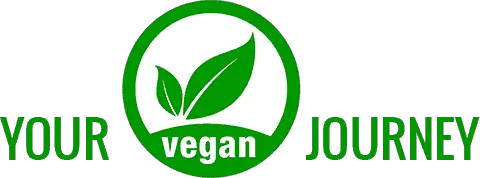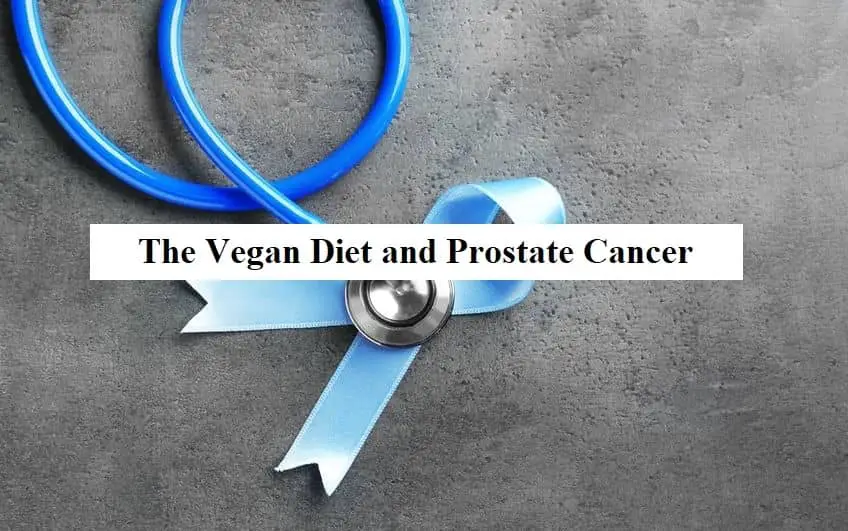I have prostate cancer on both sides of my family, so one thing I was glad to hear after switching to a vegan diet, is that whole food plant-based eating patterns offer protection in many ways against this chronic disease.
Like breast cancer, this isn’t always obvious to people. After all, food never really comes into direct contact with the prostate—as it does with the stomach and intestines. But, fortunately, many aspects of a whole food vegan diet have shown to be potentially protective when it comes to this very common form of cancer.
According to the World Health Organization (WHO), cancer is one of the leading causes of death globally, second only to cardiovascular disease.1
While there are more than 100 types of cancer overall, a select few accounts for the majority of occurring cancers worldwide—namely, cancers of the skin, breasts, lungs, liver, stomach, colorectum, and prostate.2
In regards to the relationship between diet and prostate cancer, according to Walter C. Willett, a well-known nutrition researcher, estimated that 32% of cancer deaths in the US could be attributed to diet.3
This adds up to about 394,000 new cancer cases per year in the US that can reasonably be attributed to dietary practices.
While the estimate of 32% pertained to all types of cancer, the specific types of cancer attributable to diet varied quite a bit. Specifically, he estimated that 75% of prostate deaths could be accounted for by poor dietary habits.
1) Better Prostate Cancer Outcomes Among Vegans and Vegetarians
Instead of being a way in which the vegan diet prevents prostate cancer, this one is more of a rundown of the current evidence. But in covering the current literature here, I do cover gene expression as a means by which plant foods may prevent prostate cancer, so I included this section.
As for epidemiology, unfortunately, there’s not a ton of studies on vegans and prostate cancer outcomes. However, results have been published examining the relationship between vegetarian diets and a few of the most common cancers, including prostate cancer. And as you’ll see, some studies did, in fact, involve vegans.
We’ll start with the Adventist Health Study (AHS). In this study, a large cohort of vegetarians of different types (flexitarians, pescatarians, etc.) was examined for cancer outcomes and compared to nonvegetarians.
The incidence of prostate cancer was shown to be significantly higher in nonvegetarians than in vegetarian groups.4
One study of cancer and vegetarian diets, of all the vegetarian subtypes, only the vegan group demonstrated a lower risk of developing prostate cancer.5
Luckily there is some data from intervention studies. I say luckily because studying the effects of dietary intervention on cancer outcomes is very limited due to the nature of the disease. Cancers, in general, develop and spread over long periods of time. This applies doubly for low-grade prostate cancer. For this reason, active surveillance (watching and waiting) is often the method of choice.6 Fortunately, there’s a dietary intervention study on prostate cancer having subjects follow a vegan diet among other lifestyle changes.7
In a study by Ornish et al, 93 men with prostate cancer were randomly assigned to either an experimental group undergoing a wide range of lifestyle changes or to a usual care (control) group.
The experimental group was put on a vegan diet. The diet was to be low fat (10%) with supplements of soy, fish oil (not so vegan after all!), selenium, vitamin E, and vitamin C. They also regularly engaged in moderate aerobic exercise and attended group support sessions.
They would do this for 12 months at which point they’d assess disease progression—based on PSA levels. PSA stands for prostate-specific antigen. Not important here.
After 12 months, only six from the vegan group needed to undergo conventional treatment due to disease progression based on PSA or imaging.
On average, the experimental group saw a decrease in PSA levels (4% from baseline), whereas PSA levels actually increased (6% from baseline) in the control group.
Additionally, serum was tested on prostate cancer cells in vitro, with the vegan group inhibiting cell growth by 70% compared to a mere 9% in the control group.
The two groups underwent a follow-up at the 2-year mark, wherein 5% of the vegan group underwent conventional treatment, compared to 27% of the control group.8
But, wait there’s more!
In the same study, researchers examined changes in gene expression of prostate tissue of 30 men from the experimental group both prior to and 3 months after the intervention. They found significant modulation of genes that are in one way or another involved in tumorigenesis (fancy word for the production or formation of tumors).9
Now, this article is primarily about how a whole food vegan diet may be able to help prevent prostate cancer. I included the intervention studies because they provide some degree of evidence that a plant-based diet can delay disease progression, at least in those with low-grade prostate cancer. If a diet can help slow, or halt disease progression, that’s just another way of saying this way of eating may help create an environment in your body that’s not very hospitable to prostate cancer development.
Benefits Related to the Elimination of Animal Products
2) Vegans Don’t Consume Red Meat
Compared to other forms of cancer, meat intake doesn’t seem to have much of a relationship with prostate cancer.
For example, the 2014 World Cancer Research Fund International/American Institute for Cancer Research or WCRF/AICR (wow, that’s a mouth full) put forth a report on diet and prostate cancer. They considered the current evidence linking meat intake (of any kind) to prostate cancer to be inconclusive.10
However, there does seem to be a relationship, so I still consider this to be a benefit of the vegan diet as it excludes all meat. Why? You don’t need to consume meat. So, if you don’t need to eat a certain food, and the effects of eating said food range from neutral to potentially detrimental, then the logical thing to do is to avoid eating.
(Now, meat is far from neutral in many other respects—especially when it comes to cardiovascular disease—but this article is about meat with respect to prostate cancer.)
So, what’s the evidence for a relationship between prostate cancer and meat consumption?
Mill et al discovered a possible relationship in a study of Seventh Day Adventists.11 In this study, prostate cancer risk appeared to be elevated in the group with the highest consumption (daily intake).
3) Vegans Have Less Exposure to Exogenous Hormones
Unlike meat consumers, vegans avoid exposure to exogenous hormones like estradiol from cattle. At present, between 70-90% of cattle in the U.S. receive hormone implants below the skin.12
Many such hormones are banned in Europe, while the US simply regulates their use. Currently, the US allows for five different hormones: estradiol, testosterone, progesterone, zeranol, and trenbolone. The latter three are synthetic.13
It just so happens that increased estradiol levels in humans have been implicated in the etiology of many cancers including cancer of the prostate.14
As for regulation, the FDA maintains that the consumption of mammalian hormones (no-synthetic) have a very small effect on human body stores.13
As for the synthetic hormones, the FDA has established maximum allowable levels of these hormones to be present in meat products. 15
While the ingestion of these hormones hasn’t been linked to cancer, the regular consumption of these exogenous hormones is enough to make many feel uneasy. Again, if you don’t need to eat something, and it might be deleterious, it’s probably not a bad idea to avoid it.
4) Vegans Don’t Consume Eggs
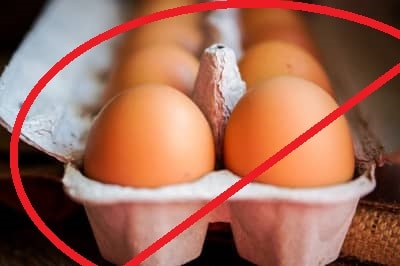
This is an interesting relationship. Some studies found no connection between egg consumption and prostate cancer, while others have found a link between eating eggs and various prostate cancer outcomes.16
For example, in another meta-analysis, men consuming five eggs per week saw an increased risk of fatal prostate cancer, whereas, no significant association of egg consumption was seen for all incident prostate cancers.17
In 2016 researchers analyzed 15 prospective cohort studies, in which men eating at least 25 grams of eggs per day (~1/2 egg) were found to have a higher risk of advanced and fatal prostate cancer compared to men eating less than 5 grams per day.18
One study looked at the recurrence and progression of prostate cancer among a group of 1294 men who’d already been diagnosed with prostate cancer. In this study, increased egg consumption was associated with recurrence and progression of the disease when comparing extremes in intake.19
The Health Professionals Follow-Up Study (HPFS) looked at a group of 27,607 men without prostate cancer. Among the group, those consuming at least 2.5 eggs per week were seen to have a higher risk of developing fatal prostate cancer compared to those consuming less than 0.5 eggs per day.20
5) Vegans Don’t Consume Dairy
According to Michael J. Orlich and Renae M. Thomas, authors of Vegetarian Nutrition and Wellness, “vegans may have some protection against prostate cancer, which may partly be due to their reduced dairy product consumption.”21
If you’ve read my articles on breast and colon cancers you may have noticed that dairy didn’t come up. Despite the IGF-1 pathway, there was no convincing body of work linking dairy consumption to the two cancers. This is because evidence associating dairy intake with the majority of cancers is limited.
However, prostate cancer is an exception. For the record, at least as of 2014, the WCRF/AICR categorizes dairy products as having limited evidence suggestive of an increased risk of prostate cancer.22
But, again there are some studies that suggest a relationship.
For starters, in a 2016 meta-analysis looking at 11 cohort studies examining the relationship between dairy and cancer mortality, a linear dose-response relationship was found between whole-milk and prostate cancer mortality.23
Another study of 6,763 white male Seventh Day Adventist members found prostate cancer to be positively associated with the consumption of milk compared to other animal products.24
Benefits Related to What a Whole Food Vegan Diet Emphasizes
6) Higher Intakes of Soy (Isoflavones)
This section is a biggy. Soy has long been studied for its role in various health outcomes, so there’s a lot to cover. Many are aware that it’s known to be potentially beneficial in the areas of bone health, breast cancer, and menopausal symptoms, while fewer are aware of its association with prostate health. As you might suspect, it has to do with the isoflavones found in soy.
The Isoflavone-Prostate Health Connection
Isoflavones have been studied for their association with menopause-related health outcomes. This is because these compounds are estrogen-like. Because of this structural similarity, these molecules are able to bind to estrogen receptors inhibiting the growth of breast cancer cells.25
It just so happens that the prostate shares an estrogen-related etiology with breast cancer.26
Evidence for a potential role of soy isoflavones in the reduction of prostate cancer risk came from a simple epidemiological observation: rates of prostate cancer among Asians migrating to the US tended to rise after a few generations in the new homeland.27,28
Another observation was that Japanese men, who are known to have lower rates of prostate cancer, tend to have higher concentrations of isoflavones in their urine, blood, and prostatic fluid, compared to men in Western societies.29,30
There have also been a few meta-analyses examining epidemiological studies carried out over the years that have looked at the relationship between soy isoflavone intake and risk of prostate cancer.31-33
In the first one, six case-control studies and two cohort studies found soy consumption to be associated with a 30% decrease in prostate cancer risk.
A few years later, another meta-analysis was published that involved epidemiological studies relating prostate cancer to soy and isoflavone consumption. The results suggested an association between the intake of soy foods and a reduction in prostate cancer risk. The report also suggested that the magnitude of the protective effect may depend on the type and quantity of soy foods consumed.
Perhaps for this reason, the third meta-analysis combined eight case-control studies with five cohort studies and reported findings per type of soy foods. The results? Well, a whole range of soy foods—soymilk, natto, miso, etc.—turned out to be protective to one degree or another in reducing prostate risk. Tofu came out on top, having the biggest impact—tofu was the only food that was significantly associated with a reduction in prostate risk.
Specific Isoflavones
One specific phytoestrogen is genistein. This isoflavone is described as an inhibitor of angiogenesis—the development of new blood vessels. One step in the cancer process is the vascularization of the newly cancerous cells/tissue—hence, one of the primary reasons this molecule is thought to be protective.34
One study showed total prostate cancer risk to be inversely associated with plasma levels of genistein.35
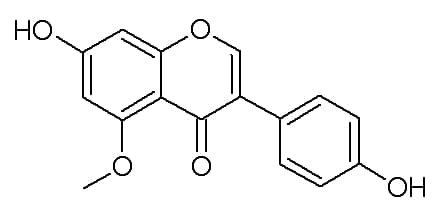
One case-control study also found an inverse association between prostate cancer risk and plasma genistein.36
Daidzein is another isoflavone found naturally in soybeans and other legumes.
In one cohort study involving 249 cases of prostate cancer, urinary daidzein was inversely associated with prostate cancer risk.37
Overall, you can see that the relationship between soy and prostate cancer risk is well-established including data from tons of observational, as well as mechanistic studies.
7) Higher Intakes of Nuts
Nuts are just loaded with nutrients of all kinds. Yes, they are a good source of many micronutrients like folic acid, vitamin E, copper, potassium, and magnesium. But, they’re also packed with dietary fiber, along with antioxidants and phytonutrients.
Of course, the specific nutrient profile varies from nut to nut, but specific substances commonly found in significant amounts include:
- Transresveratrol
- Phytoestrogens—isoflavones and lignans
- Flavonoids
- Phytosterols
- Phenolic acids
- Phytates
- Tannins
- Tocotrienols and tocopherols α-tocopherol. Benefits for cancer.38-40
- Fiber
While for the most part it may not be known exactly what the specific roles the above compounds might be playing, many studies have found nuts to be protective against prostate cancer.41
8) High Intakes of Selenium-Containing Plant Foods
While we’re on the subject, let’s start with selenium—an abundant mineral in certain nuts such as Brazil nuts. While Brazil nuts are perhaps the most famous plant source of selenium, the plant kingdom offers a few different sources of this mineral—namely, sunflower seeds, molasses, wheat bread, and wheat germ.42
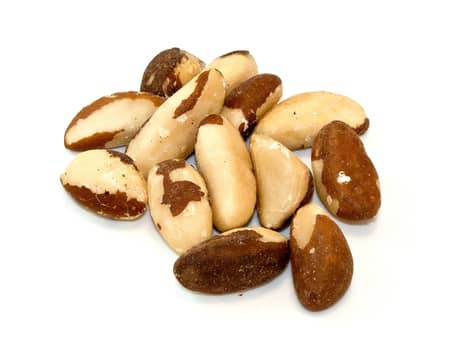
What’s this have to do with prostate cancer? In one study, higher selenium levels were found to be associated with a decreased risk of advanced prostate cancer.43
Another study, one by Clark et al. showed prostate cancer incidence to be significantly reduced in those with selenium-supplementation compared to the placebo group.44
The Selenium-Prostate Cancer Connection
For quite some time it’s been suspected that oxidative stress may play a role in the pathogenesis of prostate cancer (no surprise there).45
Selenium began attracting attention as a potential key player in the prevention of prostate cancer due to its status as a powerful antioxidant.46,47
In its function as an antioxidant, selenium can mitigate damage caused oxidative stress by reducing free radicals.48
Selenium and Vitamin E: The Dynamic Duo
When you’re reaching for a few Brazil nuts, grab a handful of almonds or mixed nuts too while you’re at it. It turns out that selenium has a synergistic relationship vitamin E—a fat-soluble vitamin/antioxidant found widely in the most commonly consumed nuts. According to one study, it’s this synergistic relationship that may be at play when it comes to selenium’s observed role in reducing prostate cancer risk.49
9) High Intakes of Garlic and Onion
If you read the article on colon cancer, then you know that there have been many studies showing that veggies from the Allium genus have been shown to reduce the development of a range of cancers including prostate cancer.50-53
According to one study, using garlic at least two times per week reduced the risk of prostate cancer by 44%.54
If you want to know more about the Allium vegetables and cancer risk, I highly suggest you check out the article on colorectal cancer, where I list several more studies showing protective effects.
10) High Intakes of Legumes
Cancer is a group of diseases that involve abnormal cell growth with the potential to invade or spread to other parts of the body (National Cancer Institute, 2015).55
As with all foods, legumes show more or less efficacy at different sites of the body when it comes to helping prevent cancer. And of course, it depends on the beans. But, as a whole, many studies suggest that legumes confer a protective effect on various cancers, including cancers of the pancreas, stomach, colon, and prostate.56
The WCRF/AICR performed a review of the literature showing a protective effect against stomach and prostate cancers.57
11) High Intakes of Lycopene
As with breast cancer, carotenoids seem to offer protection against prostate cancer—specifically, the carotenoid lycopene.
For this reason, the consumption of tomato products (which are loaded with the stuff), has long been associated with a reduced risk of prostate cancer.
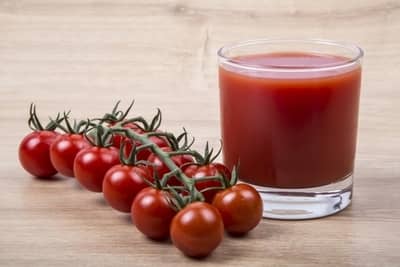
In the Health Professionals Study, lycopene consumption was inversely related to prostate cancer risk.58
In this study, the risk of prostate cancer was 35% lower in men consuming more than 10 servings of tomatoes/tomato products per week, compared with men with intakes less than 1.5 servings per week.
In the Adventist Health Study (AHS), men consuming tomatoes greater than five times per week benefited from a 40% lower risk of prostate cancer compared to men consuming less than one ounce per week of tomatoes.59
12) Lower Incidence of Obesity Among Vegans
Obesity rates are lower amongst vegetarian populations, and especially vegans.60
According to the WRCF, prostate cancer is among 11 cancers associated with high BMI scores.
A 2016 systematic review/meta-analysis involving 230 cohort studies turned up similar findings. Adiposity turned out to be a risk factor for at least 10 cancers, including advanced prostate cancer.61
Not only is excess body weight associated with prostate cancer risk, but folks with a high BMI also have lower survival rates after cancer diagnosis.61
References
- World Health Organization. 2018. Cancer—Fact sheet. Available at
https://www.who.int/news-room/fact-sheets/detail/cancer - WCRF (World Cancer Research Fund International). 2012. Cancer facts and figures: Worldwide data. Available at http://www.wcrf.org/int/cancer-facts-figures/worldwide -data
- Willett, W. Diet, nutrition, and avoidable cancer. Environ. Health Perspect., 103 (Suppl 8):165-170, 1995.
- Fraser GE. 1999. Associations between diet and cancer, ischemic heart disease, and all-cause mortality in non-Hispanic white California Seventh-day Adventists. Am J Clin Nutr 70(3):532S–8S.
- Tantamango-Bartley Y, Knutsen SF, Knutsen R, Jacobsen BK, Fan J, Beeson WL, Sabate J et al. 2016. Are strict vegetarians protected against prostate cancer? Am J Clin Nutr 103(1):153–60.
- Matthes KL, Limam M, Dehler S, Korol D, Rohrmann S. 2017. Primary treatment choice over time and relative survival of prostate cancer patients: Influence of age, grade, and stage. Oncol Res Treat 40(9):484–9.
- Ornish D, Weidner G, Fair WR, Marlin R, Pettengill EB, Raisin CJ, Dunn-Emke S et al. 2005. Intensive lifestyle changes may affect the progression of prostate cancer. J Urol 174(3):1065–9; discussion 1069–70.
- Frattaroli J, Weidner G, Dnistrian AM, Kemp C, Daubenmier JJ, Marlin RO, Crutchfield L, Yglecias L, Carroll PR, Ornish D. 2008. Clinical events in prostate cancer lifestyle trial: Results from two years of follow-up. Urology 72:1319–23. doi: 10.1016/j .urology.2008.04.050.
- Ornish D, Magbanua MJM, Weidner G, Weinberg V, Kemp C, Green C, Mattie MD, Marlin R, Simko J, Shinohara K, Haqq CM, Carroll PR. 2008b. Changes in prostate gene expression in men undergoing an intensive nutrition and lifestyle intervention. Proc Natl Acad Sci U S A 105(24):8369–74.
- WCRF/AICR (World Cancer Research Fund International/American Institute for Cancer Research). 2014a. Continuous Update Project report: Diet, nutrition, physical activity and prostate cancer. Available at wcrf.org/prostate-cancer-2014. All CUP reports are available at wcrf.org/cupreports.
- Mills, P.K., Beeson, W.L., Phillips, R.L., and Fraser, G.E. Dietary habits and breast cancer incidence among Seventh-Day Adventists. Cancer, 64:582-90, 1989.
- Hanrahan, C. The EU’s Ban on Hormone-Treated Meat. Congressional Research Service Report RS20142, Washington D.C., 1999.
- USDA, Meat Safety and Wholesomeness, Unit 2. In: The Livestock Industry: Production of Lean, Wholesome Meat for the Consumer, Module 1 of The Consumer’s Choice Meat Education Program. Produced by the U.S. Department of Agriculture, Extension Service.
- Liehr, J.G. Is estradiol a genotoxic mutagenic carcinogen? Endocr. Rev., 21(1):40- 54, Feb 2000.
- Green Book — FDA Approved Animal Drug Products, 1989-2000. Virginia Polytechnic Institute, Blacksburg, VA, 2000.
- Xie B, He H. 2012. No association between egg intake and prostate cancer risk: A metaanalysis. Asian Pac J Cancer Prev 13:4677–81.
- Keum N, Lee DH, Marchand N, Oh H, Liu H, Aune D, Greenwood DC, Giovannucci EL. 2015. Egg intake and cancers of the breast, ovary and prostate: A dose-response metaanalysis of prospective observational studies. Br J Nutr 114(7):1099–107.
- Wu K, Spiegelman D, Hou T, Albanes D, Allen NE, Berndt SI, van den Brandt PA et al. 2016. Associations between unprocessed red and processed meat, poultry, seafood and egg intake and the risk of prostate cancer: A pooled analysis of 15 prospective cohort studies. Int J Cancer 138:2368–82. doi: 10.1002/ijc.29973.
- Richman EL, Stampfer MJ, Paciorek A, Broering JM, Carroll PR, Chan JM. 2010. Intakes of meat, fish, poultry, and eggs and risk of prostate cancer progression. Am J Clin Nutr 91(3):712–21.
- Richman EL, Kenfield SA, Stampfer MJ, Giovannucci EL, Chan JM. 2011. Egg, red meat, and poultry intake and risk of lethal prostate cancer in the prostate-specific antigen-era: Incidence and survival. Cancer Prev Res (Phila) 4(12):2110–21.
- Winston Craig – Crc Press, Taylor & Francis Group – 2018
- WCRF/AICR (World Cancer Research Fund International/American Institute for Cancer Research). 2014a. Continuous Update Project report: Diet, nutrition, physical activity and prostate cancer. Available at wcrf.org/prostate-cancer-2014. All CUP reports are available at wcrf.org/cupreports.
- Lu W, Chen H, Niu Y, Wu H, Xia D, Wu Y. 2016. Dairy products intake and cancer mortality risk: A meta-analysis of 11 population-based cohort studies. Nutr J 15(1):91. Review. PubMed PMID: 27765039; PubMed Central PMCID: PMC5073921.
- Snowdon, D.A., Phillips, R.L., and Choi, W. Diet, obesity, and risk of fatal prostate cancer. Am. J. Epidemiol., 120:244-50, 1984.
- Hirano, T., Fukuoka, K., Oka, K., Naito, T., Hosaka, K., Mitsuhashi, H., and Matsumoto, Y. Antiproliferative activity of mammalian lignan derivatives against the human breast carcinoma cell line, ZR-75-1. Cancer Invest., 8: 595, 1990.
- Jason L Nelles, Wen-Yang Hu, and Gail S Prins. Estrogen action and prostate cancer. Expert Rev Endocrinol Metab. 2011;6(3):437–451.
- Pienta KJ, Goodson JA, Esper PS. 1996. Epidemiology of prostate cancer: Molecular and environmental clues. Urology 48:676–83.
- Shimizu H, Ross RK, Bernstein L, Yatani R, Henderson BE, Mack TM. 1991. Cancers of the prostate and breast among Japanese and white immigrants in Los Angeles County. Br J Cancer 63:963–6.
- Adlercreutz H, Yamada T, Wahala K, Watanabe S. 1999. Maternal and neonatal phytoestrogens in Japanese women during birth. Am J Obstet Gynecol 180:737–43.
- Morton MS, Chan PS, Cheng C, Blacklock N, Matos-Ferreira A, Abranches-Monteiro L, Correia R, Lloyd S, Griffiths K. 1997. Lignans and isoflavonoids in plasma and prostatic fluid in men: Samples from Portugal, Hong Kong, and the United Kingdom. Prostate 32:122–8.
- Yan L, Spitznagel EL. 2005. Meta-analysis of soy food and risk of prostate cancer in men. Int J Cancer 117:667–9.
- Yan L, Spitznagel EL. 2009. Soy consumption and prostate cancer risk in men: A revisit of a meta-analysis. Am J Clin Nutr 89:1155–63.
- Hwang YW, Kim SY, Jee SH, Kim YN, Nam CM. 2009. Soy food consumption and risk of prostate cancer: A meta-analysis of observational studies. Nutr Cancer 61:598–606.
- Fotsis T, Pepper M, Adlercreutz H, Hase T, Montesano R, Schweigerer L. Genistein, a dietary ingested isoflavonoid, inhibits cell proliferation and in vitro angiogenesis. J Nutr. 1995;125:790S–797S.
- Kurahashi N, Iwasaki M, Inoue M, Sasazuki S, Tsugane S. 2008. Plasma isoflavones and subsequent risk of prostate cancer in a nested case-control study: The Japan Public Health Center. J Clin Oncol 26:5923–9.
- Travis RC, Spencer EA, Allen NE, Appleby PN, Roddam AW, Overvad K, Johnsen NF et al. 2009. Plasma phyto-oestrogens and prostate cancer in the European Prospective Investigation into Cancer and Nutrition. Br J Cancer 100:1817–23.
- Park SY, Wilkens LR, Franke AA, Le Marchand L, Kakazu KK, Goodman MT, Murphy SP, Henderson BE, Kolonel LN. 2009. Urinary phytoestrogen excretion and prostate cancer risk: A nested case-control study in the Multiethnic Cohort. Br J Cancer 101:185–91.
- Elson, C.E. and Yu, S.G. The chemoprevention of cancer by mevalonate-derived constituents of fruits and vegetables. J. Nutr., 124: 607, 1994. 69.
- Pearce, B.C., Parker, R.A., Deason, M.E., Qureshi, A.A., and Wright, J.J. Hypocholesterolemic activity of synthetic and natural tocotrienols. J. Med. Chem., 35: 3595, 1992.
- Yu, S.G., Abuirmeilah, N.M., Quershi, A.A., and Elson, C.E. Dietary beta-ionone suppresses hepatic 3-hydroxy-3-methylglutaryl coenzyme A reductase activity. J. Agric. Food Chem., 42: 1493, 1994.
- Hebert, J.R., Hurley, T.G., Olendzki, B.C., Teas, J., Ma, Y., and Hampl, J.S. Nutritional and socioeconomic factors in relation to prostate cancer mortality: a cross-national study. J. Natl. Cancer Inst., 90: 1637, 1998.
- Czajka-Narins, D. Minerals. In: Krause’s Food Nutrition and Diet Therapy. Mahan, L.K. and Escott-Stump, S. (Eds.), W.B. Saunders, Philadelphia, 1996, chap 7.
- Yoshizawa, K., Willett, W.C., Morris, S.J., Stampfer, M.J., Spiegelman, D., Rimm,, E.B., and Giovannucci, E. Study of prediagnostic selenium Level in toenails and the risk of advanced prostate cancer. J. Nat. Can. Inst., 90, 16, 1219, 1998.
- Clark, L.C., Combs, G.F.Jr., Turnbull, B.W., Slate, E.H., Chalker, D.K., Chow, J., Davis, L.S., Glover, R.A., Graham, G.F., Gross, E.G., Krongrad, A., Lesher, J.L., Jr., Park, H.K., Sanders, B.B., Jr., Smith, C.L., and Taylor, J.R. Effects of selenium supplementation for cancer prevention in patients with carcinoma of the skin. A randomized controlled trial. Nutritional Prevention of Cancer Study Group. JAMA, 276, 1957, 1996.
- Lavender N, Hein DW, Brock G, et al. Evaluation of oxidative stress response related genetic variants, pro-oxidants, antioxidants and prostate cancer. AIMS Med Sci 2015;2:271–94
- Björnstedt M, Fernandes AP. Selenium in the prevention of human cancers. EPMA J 2010;1:389–95.
- Kenfield SA, Van Blarigan EL, DuPre N, et al. Selenium supplementation and prostate cancer mortality. J Natl Cancer Inst 2015;107:360.
- Borek C. Dietary antioxidants and human cancer. Integr Cancer Ther 2014;3:333–41.
- Taylor, P.R. and Albanes, D. Selenium, vitamin E, and prostate cancer — Ready for Prime Time? J. Nat. Can. Inst., 90, 16, 184, 1998.
- Dausch, J.G. and Nixon, D.W. Garlic: a review of its relationship to malignant disease. Prev. Med., 19: 346, 1990.
- Lau, B.H.S., Tadi, P.P., and Tosk, J.M. Allium sativum (garlic) and cancer prevention. Nutr. Res., 10: 937, 1990.
- Lau, B.H., Woolley, J.L., Marsh, C.L., Barker, G.R., Koobs, D.H., and Torrey, R.R. Superiority of intralesional immunotherapy with Corynebacterium parvum and Allium sativum in control of murine transitional cell carcinoma. J. Urol., 136: 701, 1986.
- Belman, S. Onion and garlic oils inhibit tumor promotion. Carcinogenesis, 4: 1063, 1983.
- Key, T.J., Silcocks, P.B., Davey, G.K., Appleby, P.N., and Bishop, D.T. A casecontrol study of diet and prostate cancer. Br. J. Cancer., 76: 678, 1997.
- National Cancer Institute. 2015. Defining cancer. Bethesda, MD: National Cancer Institute. https:// www.cancer.gov/about-cancer/understanding/what-is-cancer.
- Greger M, Stone G. 2015. How Not to Die: Discover the Foods Scientifically Proven to Prevent and Reverse Disease. New York: Flatiron Books.
- Marmot M, Atinmo T, Byers T, Chen J, Hirohata T, Jackson A, James W, Kolonel L, Kumanyika S, Leitzmann C. 2007. Food, nutrition, physical activity, and the prevention of cancer: A global perspective. Washington, DC: American Institute for Cancer Research.
- Giovannucci, E., Ascherio, A., Rimm, E.B., Stampfer, M.J., Colditz, G.A., and Willett, W.C. Intake of carotenoids and retinol in relation to risk of prostate cancer. J. Natl. Cancer Inst., 87: 1767, 1995.
- Mills, P.K., Beeson, W.L., Phillips, R.L., and Fraser, G.E. Cohort study of diet, lifestyle, and prostate cancer in Adventist men. Cancer, 64: 598, 1989.
- Serena, Terry B, Ru Y, et al. Type of Vegetarian Diet, Body Weight, and Prevalence of Type 2 Diabetes. Diabetes Care. 2009;32(5):791–796
- Aune D, Sen A, Prasad M, Norat T, Janszky I, Tonstad S, Romundstad P, Vatten LJ. 2016b. BMI and all cause mortality: Systematic review and non-linear dose-response metaanalysis of 230 cohort studies with 3.74 million deaths among 30.3 million participants. BMJ 353:i2156.
